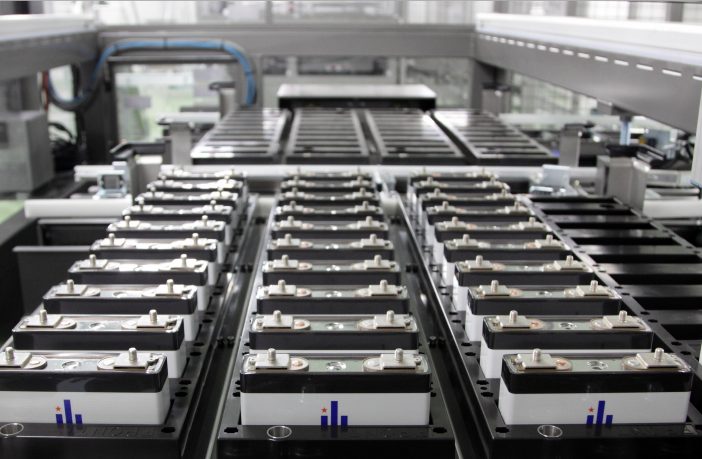- The 2019 Batteries and Electric Vehicles Conference hosted by the uYilo eMobility Programme rounded out South Africa’s October Transport Month last week.
- The conference provided critical thought leadership and the latest updates in current processes, development and technologies in the fields of Batteries and Electric Vehicles from local and international speakers.
- The MegaMillion Energy Company announced the launched Africa’s first lithium-ion mega-factory at the event.
- The factory will be located at the Coega Special Economic Zone in Port Elizabeth, Eastern Cape, South Africa.
The company’s CEO, Nechan Naicker, said: “We are a local company focused on manufacturing battery powders and lithium-ion cells locally. The vision is very clear, we want to energise Africa for its own future.”
Kevin Campbell, Managing Director: Digatron Power Electronics GmbH also announced a new division at Digatron launching in November, providing mechanical solutions for lithium cell pilot assembly lines.
“October highlights the critically important role transport plays in the economy,” said uYilo director, Hiten Parmar.
Parmar continued: “The Batteries & Electric Vehicles Conference aims to increase multi-stakeholder engagements towards advancing the electric vehicle and complementary battery storage industries in South Africa. This provides further alignment to the 2030 National Development Plan and the Green Transport Strategy of national Department of Transport to which strategic pillar eight promotes hybrid and electric vehicles.”
The Opening Address was delivered by Themba Tenza, Acting Deputy Director-General: Integrated Transport Planning at the Department of Transport.
“The Department is fully supportive of the growth of both the batteries and electric vehicles industries. We want to make an impact in reducing greenhouse gas emissions, especially from roads,” said Tenza.
4IR and the rise of electric transportation
Professor Chris Adendorff (Commissioner: Presidential Commission on the Fourth Industrial Revolution) tackled the topic of The Fourth Industrial Revolution and the Rise of Electric Transportation.
Adendorff pointed out that: “Transportation is going to move forward rapidly in the coming years, driverless cars will be electric and demand will grow exponentially.
“Most transport-related noise levels will be cut by half and 80% of autonomous fleets will be designed around single-person occupancy in the coming decades.”
Naicker spoke on Battery Manufacturing for Africa, in Africa, according to him, 70% of sub-Saharan Africa does not have reliable access to electricity. Reliable, affordable, sustainable energy for all is the way to build employment and the economy through Africa,” he noted.
“Currently the bulk of investment is into lithium-ion technology and the results are fantastic,” said Naicker.
He added: “It is driving down the price of batteries while improving the technology, but this is happening in the Northern Hemisphere, nothing in Africa. The question is, will Africa get enough lithium-ion batteries to meet demand – and how do we get it here? We have the battery minerals needed for energy storage.
“We have the largest reserves of battery minerals compared with any other continent and South Africa has 80% of the best quality manganese in the world. We have been an extractive economy for too long, it is time to beneficiate for local production and supply.”
Author: Babalwa Bungane
This article was originally published on ESI Africa and is republished with permission with minor editorial changes.












1 Comment
Pingback: Can Southern Africa make its own Li-ion batteries?